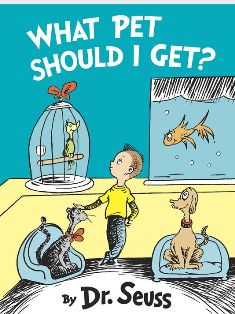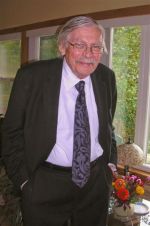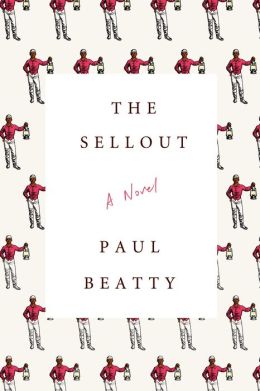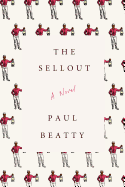 In an unusual gathering, six former presidents of the American Booksellers Association answered a series of questions posed by current ABA president Steve Bercu, owner of BookPeople, Austin, Tex., at the ABA Past Presidents Report panel at Winter Institute 10 last week in Asheville, N.C. Together they affirmed that knowing all they know, they would still happily become booksellers if they could do it all over again. Perhaps most important, they provided perspective on changes in the industry--there have always been challenges, they said, which in the past several decades have included heavy discounting by competitors beginning in the 1980s, the expansion of big box stores, bookselling on the Internet and the growth of digital books. But, as Becky Anderson, co-owner of Anderson's Bookshops in Naperville and Downers Grove, Ill., put it: "We have remained true to the object that we love. The book will never go away.... This object means everything, and we will always be here."
In an unusual gathering, six former presidents of the American Booksellers Association answered a series of questions posed by current ABA president Steve Bercu, owner of BookPeople, Austin, Tex., at the ABA Past Presidents Report panel at Winter Institute 10 last week in Asheville, N.C. Together they affirmed that knowing all they know, they would still happily become booksellers if they could do it all over again. Perhaps most important, they provided perspective on changes in the industry--there have always been challenges, they said, which in the past several decades have included heavy discounting by competitors beginning in the 1980s, the expansion of big box stores, bookselling on the Internet and the growth of digital books. But, as Becky Anderson, co-owner of Anderson's Bookshops in Naperville and Downers Grove, Ill., put it: "We have remained true to the object that we love. The book will never go away.... This object means everything, and we will always be here."
 |
| Steve Bercu introduces past ABA presidents Howorth, Kaplan, Robinson, Anderson, Tucker and Shanks. |
Richard Howorth, co-owner of Square Books, Oxford, Miss., said he believed that if were to do it all over, his desire to open a store would be "just as great and powerful and foolhardy" as it was in 1979.
Mitchell Kaplan, owner of Books & Books, with stores in south Florida, the Cayman Islands and Westhampton Beach, N.Y., said that "the people before us had their own constellation of problems." He recalled in 1981 visiting famed Chicago bookseller Stuart Brent, who, when Kaplan said he was opening a store, grabbed Kaplan by the neck and said, "Boychik, don't do it!" Brent then complained about changes in the industry, including the fact that he could no longer just go visit the late Bennett Cerf when he was in New York.
Chuck Robinson, co-owner of Village Books, Bellingham, Wash., said that when he and his wife, Dee, opened in 1980, interest rates hit 23%. At prospective bookseller school, Robinson recalled, ABA executive director Roysce Smith said to him and the other students, "I don't know if I'm looking at 50 of the bravest or 50 of the most foolish people."
Becky Anderson, who began working in her family's bookstore when she was 11, said that if she could go back in time and talk to herself then, "I'd say be more aggressive and put out the message of the importance of buying local."
Michael Tucker, owner of Books Inc., with a dozen stores in California's Bay Area, admitted that when he started as a bookseller, "I had no idea what we were getting into." But he praised the bookselling world for its collegiality and for how booksellers readily share ideas. "I love this business," he said, adding, "There's always going to be a crisis."
Gayle Shanks, co-owner of Changing Hands, Tempe and Phoenix, Ariz., said she's "happy to go to work and come [to Winter Institute] and see friends.... I've had a ton of fun in my business over the years. Every day is a new adventure."
Some of the past presidents made fun of their own lack of business sense when they started out. Robinson said, "We don't have time for me to describe all I didn't know when we started in the business." Bookselling attracts people who aren't well versed in business, he noted, which is different from most businesses. By contrast, he said, "No one opens a hardware store without knowing about business."
He recalled that in the first year at Village Books, sales grew 70% more than projections, but the store seemed always to be low on cash. "We couldn't figure out what was going on." Then he consulted a banker, who explained immediately: "Growth eats cash."
Kaplan recalled opening his first store with no background in retail, saying, "I didn't know what sales tax was, and I had a weird idea that banks would pay checks no matter what."
He added that the "ethos of being a bookseller" as a "higher calling" that involves "a passionate desire to bring books to people," has led many to think of money as "a little dirty secret that we don't want to talk about as much as we should." If he started over, Kaplan said, "I'd get a really great business adviser to sit with me and advise me."
Shanks said she wished there were a way for booksellers to "monetize" their experience and knowledge about books and authors and the industry. "What we do is really important to our culture," she said, "and we should be paid for it in a much bigger way."
Several of the past presidents noted that booksellers who own their buildings have a major business advantage. Kaplan said that one thing he'd learned in his career was that "I should have been in real estate." He summed up a common conundrum for booksellers: "Many of us open stores on the edge of town or in a depressed area. We build up a neighborhood, and then we suffer because rents go up." One of his examples concerned South Beach, where rents were $6 a square foot when he opened and are $500 a square foot now.
Howorth provided another illustration of the phenomenon, saying he bought his first building in 1984. In 2005, he bought his second, which was "half the size and cost 10 times more."
While acknowledging some improvements in relations with publishers, some of the past presidents touched on tensions. As Shanks said, "We keep talking with publishers about being their partners. One challenge is figuring out what true partner does and what that relationship is." She said she hoped publishers would remember that "we are their front and center line for getting books to the public."
Anderson said she feels "the partnership isn't quite equal. A partnership has to be two-way street, and sometimes I feel we give too much on our side."
Kaplan emphasized "the challenge of creating some kind of rationalization of the relationship we have with publishers." He added that some business practices have to change "in order to make sense for all of us."
Howorth noted that "our partners in publishing expect us to uphold the value of suggested retail and then sell with deep discounts to consumers," which he called "deeply challenging."
Tucker praised "the big increase in dialogue between booksellers and publishers and authors." Howorth added that "authors of late have been much more outspoken in support of bookstores, and that's a great thing."
The former presidents had an optimistic view of the future. Anderson said, "Young booksellers have so many brilliant, cool ideas and we should give them freedom to do these ideas." Likewise, Anderson said, her stores are "ramping up what we do to connect with kids," particularly middle schoolers. "Kids are the future."
Tucker added that "the most exciting thing for me is seeing the energy of young booksellers who are coming up. They're way smarter than I was coming into the business. It's a joy to me to see so many new faces at Winter Institute--and they're all young. That means there's a future for this." --John Mutter
 Effective April 1, Sean Shoemaker will become president of Publishers Group West. He has been v-p of operations and a member of the PGW Executive Committee and earlier was key accounts manager and director of account services. Before joining PGW in 1995, he worked at Parallax Press and at his family's publishing company, North Point Press.
Effective April 1, Sean Shoemaker will become president of Publishers Group West. He has been v-p of operations and a member of the PGW Executive Committee and earlier was key accounts manager and director of account services. Before joining PGW in 1995, he worked at Parallax Press and at his family's publishing company, North Point Press.






 Called What Pet Should I Get?, the book was initially found in Theodor Geisel's home shortly after his death in 1991, then "rediscovered" in 2013 by his widow, Audrey Geisel, and longtime secretary and friend Claudia Prescott.
Called What Pet Should I Get?, the book was initially found in Theodor Geisel's home shortly after his death in 1991, then "rediscovered" in 2013 by his widow, Audrey Geisel, and longtime secretary and friend Claudia Prescott.
 In an unusual gathering, six former presidents of the American Booksellers Association answered a series of questions posed by current ABA president Steve Bercu, owner of
In an unusual gathering, six former presidents of the American Booksellers Association answered a series of questions posed by current ABA president Steve Bercu, owner of 


 Why'd They Wear That?: Fashion as the Mirror of History
Why'd They Wear That?: Fashion as the Mirror of History Born in Los Angeles and a long-time resident of New York City, Paul Beatty tramples the stereotypes and accepted sociology of American black males with dazzlingly smart fiction. The protagonists of his first two novels, White Boy Shuffle and Slumberland, are well-read and well-schooled in street vernacular and hip music, with a sardonic skepticism about what it means to be a black man in the modern world. His new novel, The Sellout, takes this same mix to the next level; it's an over-the-top fable of a young black man with the street name Bonbon who farms an urban tract in the once-rural (fictional) town of Dickens in South Los Angeles. Bonbon was raised by an academic sociologist with a penchant for using his son for behavioral experiments and who was famous among the Dickens "Dum Dum Donut Intellectuals" as a "ni**er-whisperer" who defused potential violence and suicide with his soothing voice: a "doo-wop tenor, deep... that rooted you in place like a bobby-socked teenager listening to the Five Satins sing 'In the Still of the Night.' " When his father is accidentally shot by the LAPD, Bonbon receives a $2-million wrongful death settlement and, as he says, "He and I bought the farm on the same day."
Born in Los Angeles and a long-time resident of New York City, Paul Beatty tramples the stereotypes and accepted sociology of American black males with dazzlingly smart fiction. The protagonists of his first two novels, White Boy Shuffle and Slumberland, are well-read and well-schooled in street vernacular and hip music, with a sardonic skepticism about what it means to be a black man in the modern world. His new novel, The Sellout, takes this same mix to the next level; it's an over-the-top fable of a young black man with the street name Bonbon who farms an urban tract in the once-rural (fictional) town of Dickens in South Los Angeles. Bonbon was raised by an academic sociologist with a penchant for using his son for behavioral experiments and who was famous among the Dickens "Dum Dum Donut Intellectuals" as a "ni**er-whisperer" who defused potential violence and suicide with his soothing voice: a "doo-wop tenor, deep... that rooted you in place like a bobby-socked teenager listening to the Five Satins sing 'In the Still of the Night.' " When his father is accidentally shot by the LAPD, Bonbon receives a $2-million wrongful death settlement and, as he says, "He and I bought the farm on the same day."